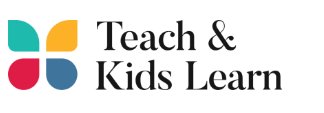Addressing Attention Deficits in the Classroom
Course Description:
Every year, more and more students across the nation are diagnosed with attention deficits. In 2020, more than 16 million (9.4%) of children in the U.S. had some type of ADD/ADHD diagnosis that they bring to the classroom.
While the field of education has historically used the label Attention Deficit Disorder (ADD) or Attention Deficit Hyperactivity Disorder (ADHD) to describe students with attention-based learning exceptionalities, these terms are misnomers. Students diagnosed with ADD or ADHD, in fact, do not have a deficit of attention; they have a superfluous amount of attention and bring a unique mix of assets and challenges to the traditionally structured classroom environment. One of the biggest challenges for exceptional students is applying self-regulatory strategies to control and channel their attention in ways that are adaptive for learning. One of the biggest challenges for teachers is to structure learning tasks and the learning environment to communicate value and respect for the diverse thinking processes and assets students bring to the classroom community while teaching adaptive self-regulation strategies that promote learning, metacognition, and motivation.
These variable attention issues may manifest in lack of engagement, behavior issues, lack of organization, trouble staying on task, incomplete assignments, or interpersonal problems. Teachers with a deep understanding of building relationships, proactive classroom management, culturally responsive instruction, and scaffolds that promote self-regulation, experience success in teaching learners with variable attention.
Before a teacher can engage students with variable attention in challenging “minds-on” activities, they must first understand the characteristics of effective teaching strategies that help students thrive. This course provides educators and administrators with evidence-based, culturally responsive methods to analyze the emotional, behavioral, and academic needs of students with variable attention. Learning how variable attention influences student learning enables educators to select instructional strategies and methods that promote high levels of mastery and academic performance.
As you progress through each course module, you will learn about proactive behavior management to prevent outbursts and disruptive behaviors, build rapport, and create a respectful environment that acknowledges and values the contributions and assets of students with learning exceptionalities. In addition, you will use job-embedded classroom activities, instructional strategies, and scaffolds that improve equitable access to core academic content and focus student attention on what matters most in the classroom. You will distinguish common characteristics of students with variable attention, help students self-regulate and channel their attention, design effective learning tasks, and structure the classroom environment to promote equitable learning opportunities. You will work hand-in-hand with families to promote student success.
This course is divided into the following modules:
- Culturally Responsive Approaches to Diversity, Equity and Inclusion
- Self-Management and Self-Regulation
- Developing Organizational Skills
- Instructional Strategies that Promote Access and Equity
- Creating Inclusive Learning Environments
********
ADDITIONAL NOTES: TNKL courses receive letter grades.
Website: www.TeachnKidsLearn.com
Facebook: https://www.facebook.com/TeachnKidsLearn
Course Location: www.teachnkidslearn.com
HOW TO ACCESS YOUR COURSE MATERIALS:
Within 1-2 business days of your Ashland registration, you will receive an email from your course content provider, Teach & Kids Learn, containing instructions on how to access your course materials. A note, their emails are sometimes forwarded to junk or spam folders.
You will be working with TNKL, through their Learning Management System, to complete the course, after which, your instructor will record your grade on your AU transcript. We will notify you by email once this is done, with instructions on how to view and order transcripts.
Ashland Professional Development: pds@ashland.edu
Meeting Times
- Location of Meeting:online www.teachnkidslearn.com


